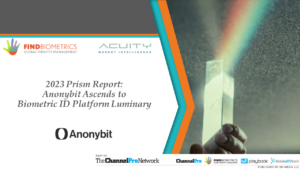Welcome to FindBiometrics’ digest of identity industry news. Here’s what you need to know about the world of digital identity and biometrics today:
Australian Government Pursues Airport Biometrics, Digital ID
The Australian government has issued a Request for Information concerning a “biometric capture and verification capability” for the country’s 11 international airports. This project will require the selected vendor to supply biometric cameras and other hardware, biometric software, and support and maintenance services, with the essential aim being to use facial recognition to match travelers to their passport photos. The RFI has a closing date of January 15, 2024, and the Australian government is aiming to have the rollout complete by July of 2026.
The Aussies also plan to allocate an additional $56 million to the ongoing operation of identity matching services in the country’s emerging Digital ID program, part of a larger proposed package of $145.5 million for the overall project. The funding arrived alongside legislation introduced to the country’s senate that would expand the use of digital ID beyond citizens’ interactions with the federal government, and into the online services of states, territories, and accredited actors in the private sector. Government Services Minister Bill Shorten indicated that biometric systems such as those used in smartphones may be used for authentication in digital ID transactions.
Bipartisan Group Seeks to Ban TSA’s Facial Recognition
A bipartisan group of senators has introduced legislation to put a halt to the Transportation Security Administration’s growing use of facial recognition technology. The bill was introduced by Sens. John Kennedy, R-La., and Jeff Merkley, D-Ore., and is co-sponsored by Sens. Ed Markey, D-Mass., Roger Marshall, R-Kan., Elizabeth Warren, D-Mass., and Bernie Sanders, I-Vt. Sen. Merkley called the program “a precursor to a full-blown national surveillance state.” The TSA’s face-scanning program is distinct from that of US Customs and Border Protection, which has a legal mandate from Congress to establish a biometric border control system. The TSA its aim is mainly to automate the identity verification process for travelers.
Top Illinois Court Upholds BIPA’s HIPAA Exemption
The Illinois Supreme Court has reaffirmed the Biometric Information Privacy Act’s HIPAA (Health Insurance Portability and Accountability Act) exemption, ruling against a pair of nurses who sued their employer over its use of a medication storage system that used fingerprint recognition for access. The nurses had argued that their employer violated BIPA by failing to provide the proper disclosures concerning the collection and storage of biometric data, but the Supreme Court justices unanimously agreed that BIPA clearly spells out its exemption for the use of biometrics in healthcare “treatment, payment or operations”.
Fingerprinting Company Reaches $10.85M BIPA Settlement
Meanwhile, a company called “Biometric Impressions” has reached a $10.85 million settlement in a BIPA lawsuit of its own. The company’s core service is inkless, live-scan fingerprinting. It was sued for failing to provide the proper disclosures required under BIPA, and failing to obtain written consent from the individuals it fingerprinted. The company has not admitted wrongdoing, but reached a settlement that will see each claimant in the class action receive up to $1,000.
Wicket Brings Biometric Entry to Alabama Stadium
Wicket has deployed its face-scanning ticketless entry system at the Mercedes-Benz Stadium in Alabama, where it will go live this weekend for the SEC championship football game. Fans can set up an account online, linking their face to their SEC account through a selfie photo. Administrators at the Mercedes-Benz Stadium seem to be keen on hi-tech innovation. This past summer, they set a Boston Dynamics quadrupedal robot on patrol to guard the stadium.
Ōura Marks 600+ Partner Milestone
Ōura is closing out the year with more than 600 partnerships and integrations revolving around its flagship biometric wearable, the Oura Ring. The company says its product has tracked 10 billion hours of data, including more than 2.3 billion hours of sleep. “We’ve been steadily building a strong partnership ecosystem and adding world-class features into the Ōura experience,” said CEO Tom Hale, adding that the firm is “becoming an iconic, global brand that is changing the way we think about long-term health and healthspan.” One recently announced partnership was with the University of Vermont, which is using Oura Rings to track student health.
FaceMe Security Integrated Into Genetec Platform
CyberLink’s FaceMe Security solution has been integrated into the Genetec Security Center platform, allowing users of the latter to implement access control based on facial recognition. Users can also install the FaceMe Locator plugin to search surveillance footage via Genetec Security Center’s Visual Tracking function. CyberLink is not Genetec’s first facial recognition partner; the company integrated Alcatraz AI’s ‘the Rock’ system into its Synergis platform earlier this year.
–
December 1, 2023 – by Alex Perala









Follow Us